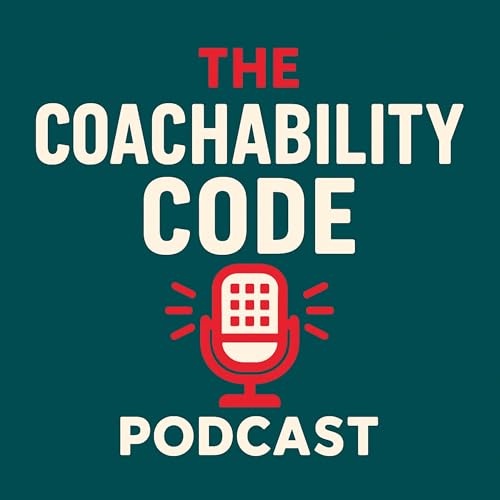Connect with Jared H
→LinkedIn: https://www.linkedin.com/in/jaredwilliamhamilton/
→Instagram: @jaredw.hamilton
What this episode is about
→Why “1 sentence branding” breaks for people who live multi-threaded lives
→What makes someone coachable, especially under pressure and pain
→How to lead, coach, and build systems when your life is full
Who this helps
→Business owners who love the business AND feel trapped by it
→Leaders, coaches, and parents who want to develop people with clarity and backbone
Key takeaways
→Jared doesn’t try to shrink his identity to sound clean online, he owns the complexity.
→Coachability shows up fast in humility, not in “I know everything” energy.
→Pain can crack people open in a good way, it creates the willingness to learn.
→A coach who’s been in the mud can warn you about the emotional toll of change.
→Change is rarely the problem, the transition is where people melt down.
→Great coaching starts with expectations, before anything gets hard.
→Accountability works better with deadlines and clear follow-up, not hand-holding.
→Praise the behaviors you want repeated, then you get more of them.
→Sometimes the best “coach” is a peer group that makes you feel less alone.
→A coach who is light-years ahead can expand what you believe is possible, then pull you back to the next tiny step.
Quotables
→“I don’t think I can introduce myself briefly.”
→“I am too many.”
→“If there is something that gets a hold of me that I want to know more of, just do not stand in my way.”
→“Change doesn’t kill the business, it’s the transition.”
→“True coaching, I believe, is transferring your passion.”
→“Send me a DM that says Freedom.”
Practical tools and frameworks
→Set expectations up front, so you have a clear standard to coach back to later.
→2-week coaching cadence with 2 to 3 homework items, plus a real accountability deadline.
→Use personality lenses like DISC or Color Code to tailor how you coach each person.
→Reverse-engineer growth with: “What has to be true for this to happen?”
→Freedom assessment: DM Jared “Freedom” to get his survey on how much the business owns you.
Books mentioned
→Atomic Habits by James Clear
→Tiny Habits by BJ Fogg
→The Compound Effect by Darren Hardy
→Dirt to Soil by Gabe Brown
→Profit First by Mike Michalowicz
→Never Split the Difference by Chris Voss
→How to Win Friends and Influence People by Dale Carnegie
→David Goggins books
→ I’m Jordan, ghostwriter, book coach, and developmental editor.
→ Let’s turn your coaching insights into a book that builds trust and grows your business.
→ Connect with me at jmring.com
#Coaching #Entrepreneurship #Leadership #Coachability #BusinessOwner #Mentorship #Habits #TeamBuilding #TimeManagement
 Mar 1 202646 m
Mar 1 202646 m 41 m
41 m
 Feb 18 202633 m
Feb 18 202633 m 1 h y 3 m
1 h y 3 m Feb 2 20261 h y 5 m
Feb 2 20261 h y 5 m 47 m
47 m 46 m
46 m
